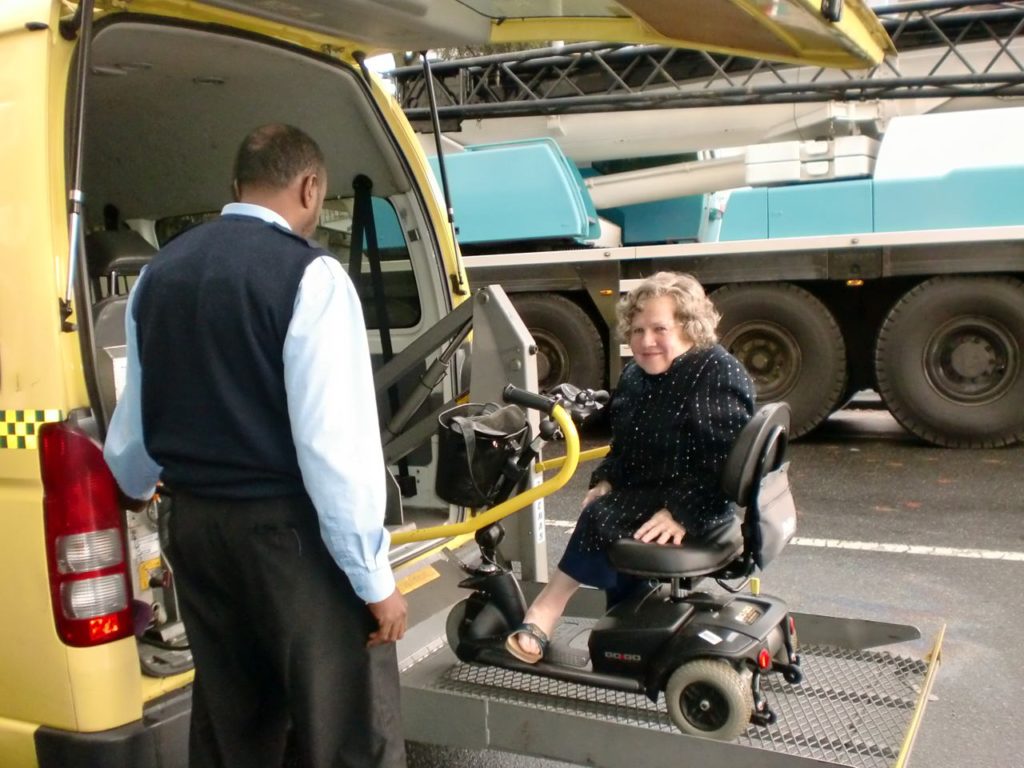
People with disabilities should not be made to feel like second-class citizens or punished because of their disability. These are welcome words from Assistant Attorney General Kristen Clarke in a United States Department of Justice (DOJ) press release on July 18, 2022.
As we commemorate passage of the Americans with Disabilities Act (ADA) on National Disability Independence Day (July 26, 1990), it’s heartening that the DOJ—tasked with enforcing this disability civil rights law—remains committed to this directive. DOJ’s July 18th action holding Uber accountable for discriminating against people with disabilities makes their commitment clear.
Want to subscribe to receive blog updates sign up today!
In November 2021, the DOJ filed an ADA lawsuit against Uber for charging passengers wait time fees. The fees, dating back to 2016, started two minutes after the Uber car arrived at the pickup location and were charged until the car began its trip. The DOJ complaint alleged that Uber violated the ADA by failing to reasonably modify its wait time fee policy for passengers who, because of disability, needed more than two minutes to get in an Uber car. For example, passengers who use a wheelchair or walker may need more time to fold or stow it in the vehicle.
The DOJ settled the case on July 18th when Uber agreed to pay several million dollars in compensation to more than 65,000 Uber riders who were charged discriminatory fees due to disability. Going forward, Uber will no longer charge wait time fees for all Uber riders who certify that their disability causes them to take longer to get in an Uber car. Uber will advertise the wait time fee waiver program and train its customer service representatives on the waiver program and refund process to ensure that people with disabilities are not charged illegal fees.
This is great news for riders with disabilities who are able to board an Uber vehicle. But what about riders who need a wheelchair accessible vehicle (WAV) to use a ridesharing or taxi service? Their issue is not with wait time fees, but with waiting for Uber, Lyft, and taxis to provide a WAV service. These riders are denied the opportunity to book a trip.
After flying 2,500 miles from West Palm Beach, Florida to Spokane, Washington two weeks ago, the toughest leg of my trip was getting a ride eight miles from the airport to my hotel. Uber and Lyft had no WAVs and Orange taxi only had two. Despite being grateful that Orange cab honored my reservation when my flight was delayed, I cringed at the $100 surcharge. Since I had no other way to get to the hotel, I had to pay the equivalent of a triple fare for the “privilege” of riding in a WAV. Surely this is a violation of the surcharge prohibition found in the ADA Title III regulation at 28 CFR § 36.301(c).
As much as the ADA has accomplished, there is so much more to be done. So what is the next step for achieving accessible rideshare and taxi services?
For discussion of other advocacy issues, go to “ALWAYS AN ADVOCATE: Champions of Change for People with Dwarfism and Disabilities” available on Amazon in print, e-book, and audio formats. Read more at https://angelamuirvanetten.com/always-an-advocate/. To subscribe to my weekly blog on dwarfism and disability issues, go to https://angelamuirvanetten.com/blog/.
